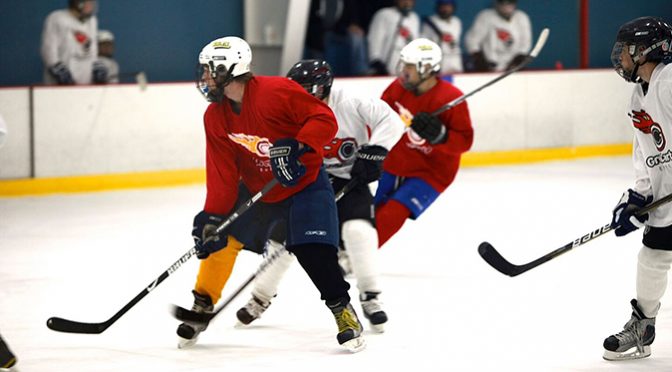28
November
Holiday Shoppers & Hockey Parents
Posted by Greg Carter
A new holiday tradition has emerged within a circle of family and friends over the past few years that involves scanning the national news for the footage of outrageous behavior by black Friday shoppers. The excitement and anticipation all kicks off Thursday evening when long lines start to snake their way around the outside of stores as people wait for hours and hours for access to the best deals of the year.
And once the store doors open, it’s like the hole shot at a motocross race, the gates opening at the Kentucky Derby and the opening faceoff at Game 7 of the Stanley Cup Finals all rolled up into one incredibly intense moment. And what happens next is anyone’s guess.
TV footage of these mad scrambles from the front doors of the store to the electronics departments resembles the running of the bulls in Pamplona, Spain. Hearts are pumping and adrenaline is at peak levels, it’s a complete frenzy. And then it happens, excitement turns to frustration, then aggression and ultimately anger. Arguments ensue and in some cases, fights break out and punches are thrown. You really can’t make it up.
So what does the behavior by some holiday shoppers have to do with the behavior of some hockey parents? There are actually some similarities – common denominators – in the behaviors witnessed in both hockey rinks and shopping malls. Unable to control the energy and excitement of the moment, some people tend to let emotions get the better of them, and their better judgement.
As we enter the holiday shopping season, and the invitational hockey tournament season, it’s a great time to take a deep breath and remember what is really important at this time of year, and what type of memories we are creating for our kids around the Christmas tree, and our hockey players around the rink.
Some of the best memories of playing youth hockey don’t involve the wins or losses, but instead the great teammates that turn into great, lifelong friends. Competition can bring out the best, and the worst in people, and it’s up to each individual to decide how they are going to react in emotional situations.
An old coach used to say that if you are properly prepared and confident in yourself and your ability to perform, then you are well-positioned to be successful. Hockey is the greatest game on Earth, and a sport full of excitement, energy and intensity. How parents and players manage emotions during a game can greatly influence the outcome of the situation and whether or not you achieve success.
So whether you are trying to win the race to the puck, or the race to a high-discounted flat-screen TV, remember that both on and off of the ice, this is the most wonderful time of the year!





 Subscribe
Subscribe Subscribe
Subscribe




